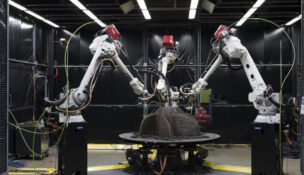VSU researchers studying how to make crops resistant to climate change
VSU researchers studying how to make crops resistant to climate change
Researchers at Virginia State University have received a $475,000 grant to study methods of making crops resistant to climate change.
Shuxin Ren and Guo-liang Jiang, researchers at VSU’s Agricultural Research Station, have been awarded the three-year grant from the Agriculture and Food Research Initiative.
AFRI is administered by the U.S. Department of Agriculture’s National Institute of Food and Agriculture.
Ren and Jiang are looking at a heat-stress tolerant gene derived from puslane, a plant species that tolerates heat and drought.
“A newly identified gene from purslane has the potential of improving crop production, especially under the stress of elevated temperatures,” Ren, associate professor of plant biotechnology, said in a statement. “High-temperature stress will significantly affect agriculture production and warrants quick action by scientists to develop heat-tolerant crops that can thrive in circumstances of heat stress.”
The awarded project will enable the ARS researchers to test the gene PoBAG6, isolated from purslane, for its potential to improve crops’ heat-tolerance ability. The PoBAG6 gene will be transferred to corn and soybeans, and researchers will evaluate the ability of the transgenic corn and soybeans to tolerate heat.
Laboratory research also will be conducted to evaluate molecular mechanisms used by PoBAG6.
Ren and Jiang aim to identify partner proteins that interact directly with the PoBAG6 protein. It is hoped these newly identified partner proteins can provide strategies to improve crop heat tolerance, and also enhance existing knowledge about how PoBAG6-mediated gene networks can help plants withstand heat stress.
“This research money will help us to continue to focus on wild species and identify more novel genes that can be used for crops’ abiotic stress tolerance,” Ren said. “We hope that, upon completion of this three-year project, the PoBAG6 gene can be used to engineer crop species, not only corn and soybeans but others, and enhance their ability to fight against heat stress during their growing seasons.”
t

















